10 Greatest French Scientists of All Time and their Accomplishments
The French have a reputation for being passionate about the arts, fine dining, and vintage wines. On the other hand, many people don’t realize that the French are also responsible for many of the modern world’s inventions. The French scientific community has made significant contributions to the contemporary world, with breakthroughs as diverse as the discovery of antibiotics and the advanced studies in radioactivity which are amongst the country’s many significant contributions.
This article provides a quick look at the top 10 most influential French scientists of all time and their notable achievements.
Louis Pasteur

First on the list is biologist Louis Pasteur, well-known in France and around the world for his work in developing modern methods of sterilization, conservation, and preservation by the use of heat or chemicals to kill harmful microorganisms. Popularly known as the “father of microbiology,” his tests demonstrated that a variety of measures, including boiling milk, sterilization, and hand washing, could be used to reduce the prevalence of disease.
Pasteur enrolled and graduated from the École normale supérieure from 1843 to 1847 and later went on to graduate from the Lycée Saint-Louis at the University of Paris.
His vaccines against deadly diseases like rabies and anthrax, which were common in his time, are often credited as some of his greatest accomplishments. His research works helped scientifically debunk spontaneous generation, a doctrine that stated that living things could emerge from nonliving things. A member of the French Academy of Sciences, the microbiologist conducted experiments to demonstrate how no living thing could develop in a sterilized and sealed container; on the flip side, microorganisms could emerge in sterilized but open containers.
Pasteur’s legacy lives on in Paris’ Pasteur Institute, which he founded in 1887, where researchers continue their quest in search for vaccines and other medical breakthroughs.
The microbiologist, also known as the “Father of Microbiology”, was awarded the National Academy of Sciences award in 1883 and the Cameron Prize for Therapeutics of the University of Edinburgh in 1889 for his advancements in scientific research. In 1862, he was honored with the Alhumbert Prize by French Academy of Sciences.
Did you know: In honor of his research works and discoveries of pasteurization methods, the word “pasteurization” was coined from the Louis Pasteur’s name?
Marie Curie
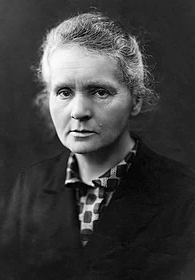
Marie Curie’s pioneering research not only expanded the horizons of scientific understanding but has had lasting impacts on medicine and various technological advancements.
The list of the top 10 greatest French scientists takes an interesting turn as we delve into Marie Curie’s radioactive world. Formerly from Poland, Marie Salomea Skłodowska Curie eventually settled in France and later became a naturalized French citizen. In France, she devoted her life to studying radioactivity, an endeavor which ultimately claimed her life.
1903 and 1911 saw the scientist become the first woman in the field of science to be awarded the Nobel Prize on two occasions and in two separate disciplines: Physics and Chemistry. Madame Curie also wrote numerous papers detailing their experiments and the discovery of polonium and radium. Born in Warsaw, Poland, Curie named the element polonium after her birth country. Furthermore, this remarkable French scientist is credited with coining the term radioactivity.
She pioneered the use of mobile radiography machines to provide X-ray technology to war torn hospitals during World War I. The Curie Institute in Paris and the Curie Institute in Poland, both established by her in 1920, are still active as important hubs of medical study and scientific breakthroughs.
In addition to her two Nobel Prize honors, Curie, who graduated from the University of Paris, amassed numerous awards, including the Actonian Prize in 1907 and the Albert Medal in 1910.
As a result of her death in 1934 from radiation poisoning, her original notes and manuscripts are still so radioactive that they are kept in lead-lined cases and may only be viewed by someone wearing protective clothing.
Did you know: Marie Curie and her husband physicist Pierre Curie were the first ever married couple to receive the Nobel Prize, which was in physics (in 1903) for their groundbreaking works in radioactivity?
Blaise Pascal
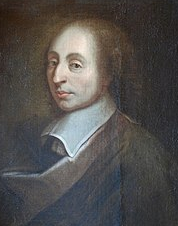
The events of Pascal’s life have been just as fascinating and have inspired just as much discussion and scholarly commentary as his literature. This is largely because of the mysterious charisma of his character and peculiar charm in how he presents his innovations. Among his many accomplishments, French Catholic theologian, inventor, mathematician, and physicist Blaise Pascal also contributed significantly to the fields of philosophy and chemistry.
In addition to his work in geometry, Pascal made important contributions to the branches of mathematics concerned with the study of probability and the study of strategic interaction between opponents. Pascal also presented the idea that pressure can be measured in a vacuum using Evangelista Torricelli’s experimentation in 1647.
To aid his father in tax collection, Pascal built one of the first mechanical calculators in 1645. In order to conduct calculations with many digits, the Pascaline relied on a system of dials, gears, and pins. The roulette wheel, still employed in casinos all over the world today, is another of Pascal’s claimed inventions. The scientist attempted and failed to develop a perpetual motion machine in 1655, which led to the creation of his famous wheel.
René Descartes

René Descartes was a pioneer in the field of mathematics, a significant contributor to the development of scientific thought, and an innovative thinker in the field of metaphysics. Descartes is widely recognized as the pioneer of modern philosophy. He is well-known for making a significant relationship between geometry and algebra, which, as a result, made it possible to solve problems involving geometry by means of equations obtained from algebra.
Descartes had his education at the Collège Royal Henry-Le-Grand from 1607 to 1614 and then went on to graduate from the University of Poitiers in 1616. “Principles of Philosophy”, by Descartes, is one of the most complete works on philosophy ever written. It was first published in 1644 and his goal was to discover the rules of nature. Although the book’s philosophical data were substantial, its scientific claims were flawed. However, that did not stop Déscartes from earning the epithet “Father of physiology”.
Jean Dausset
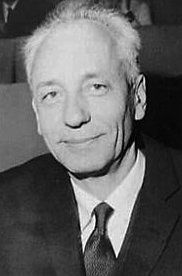
Jean-Baptiste-Gabriel-Joachim Dausset, who became the pride of his Alma Mater, University of Paris, stayed in their good books due to the discovery and characterization of genes that made up the major histocompatibility complex. Due to this research on genes, he, George Davis Snell, and Baruj Benacerraf were awarded the 1980 Nobel Prize in Physiology or Medicine.
The Toulouse-born immunologist also founded the Human Polymorphism Study Center in 1984 and conducted additional investigations on the effects of Hu-1 antigen injection on skin graft rejection. This reinforced the conclusion that the Hu-1 complex was truly a transplantation antigen, a finding that would have long-term, far-reaching significance for the transplantation process.
In his very distinguished career, Jean Dausset received a number of honors, including the Wolf Prize in Medicine in 1978 for his contributions towards medicine.
Georges Mathé
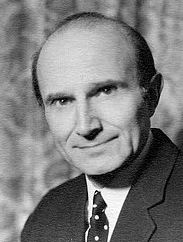
At number 6 on the list is the renowned French-born oncologist and immunologist, Georges Mathé. It did not shock the world in 1970 when Mathé was awarded the Cameron Prize for Therapeutics of the University of Edinburgh. This was because the scientist performed the first successful allogeneic bone marrow transplant ever performed on human beings that were not related.
His method caused a significant shift in the medical field as studies on cancer, leukemia, and radiation damage greatly intensified. Georges Mathé is well-known not just for his contributions to cancer, but also for his innovations in immunology, particularly the bacille Calmette-Guérin vaccine.
Mathé also delved into the world of the immunological nature of HIV/AIDS and applied immunotherapy to several patients, successfully treating them and drastically reducing the potency of the virus by the introduction of tritherapy.
Antoine Lavoisier
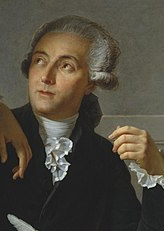
The chemist studied at the Collège des Quatre-Nations at the University of Paris from 1754 to 1761. Image: Antoine Lavoisier (26 August 1743 – 8 May 1794)
Next on the list of the greatest French Scientists is Antoine-Laurent de Lavoisier. Chemist Antoine-Laurent Lavoisier, known for his careful experimentation, ushered in a new era of mainly quantitative research in the field of chemistry. Among his many achievements are the formulation of the law of conservation of mass, the discovery that combustion and respiration result from chemical reactions involving the element he termed “oxygen,” and the systematization of chemical nomenclature.
Aside from identifying oxygen and hydrogen, the scientist also conducted many experiments and is known for the creation of acids and bases as well as his advanced research in combustion, Redox reactions and the Law of conservation of mass.
Luc Montagnier

We cannot talk about Georges Mathé, on number 8 of our list without making mention of the French virologist Luc Montagnier. An alumnus of the University of Paris and the University of Poitiers, Montagnier was known for his extensive research on HIV along with Françoise Barré-Sinoussi and Harald zur Hausen.
His discovery of the human immunodeficiency virus brought him a great deal of notoriety. Born in Chabris in central France, Montagnier was also well-known for his advocacy of the theory that the virus that causes COVID-19 was artificially created in a laboratory even though the scientific community expressed their disagreement with this theory.
Montagnier won the Nobel Prize in Physiology or Medicine in 2008 as well as the Louis-Jeantet Prize for Medicine in 1986.
Yann LeCun
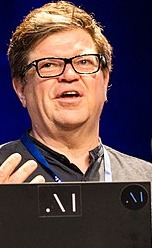
You might be wondering what makes LeCun’s name appear on this list. Although controversial, LeCun’s contributions to the world of technology cannot go unnoticed. A French computer scientist born in 1960, Yann LeCun has had a long and extensive career that has revolutionized his field.
In addition to his pioneering work in the field of convolutional neural networks, he has made significant contributions to the fields of natural language processing, mobile robots, machine learning, and computational neuroscience.
The computer scientist enrolled in the ESIEE Paris, the grande école of engineering, where he attained his master’s degree and later studied at the Pierre and Marie Curie University and obtained his PhD certificate.
The optical image recognition, DjVu file format, and the lush programming language are all inventions that can be traced back to LeCun’s innovative mind. The 2018 Turing Award, shared with Geoffrey Hinton and Yoshua Bengio, is only one of several honors he has received over his career. He was also awarded with the Legion of Honor in 2020.
Pierre-Simon Laplace

Last on our list, we have Pierre-Simon Laplace, a French polymath who made significant contributions to the fields of mathematics, engineering, astronomy, physics, statistics, and philosophy. A graduate from the University of Caen, Laplace was widely regarded as one of the greatest minds of his era.
Celestial mechanics, which was his body of work, presented to the world a synopsis as well as an expansion of the ideas that had been created by his predecessors. Laplace, who came to be known as the “French Newton”, is often credited with being the person who first developed the Bayesian interpretation of probability. In Bayesian probability, probability is not understood as the frequency or propensity of some phenomenon, but rather as a reasonable expectation based on available evidence.
The French scientist has been praised for his discovery of the Laplace transform, an integral transform that converts a function of a real variable to a function of a complex variable. A renowned figure in classical mechanics, Laplace worked on the Laplace equation, a second-order partial differential equation.
Did you know: The Laplacian differential operator was named after Pierre-Simon Laplace?
Conclusion
The revolution of the various disciplines of science couldn’t be achieved without the effort and immense contribution of these great French scientists. It can safely be concluded that most of the major strides made by scientists today are due to the foundation laid by these 10 greatest French scientists of all time.



























